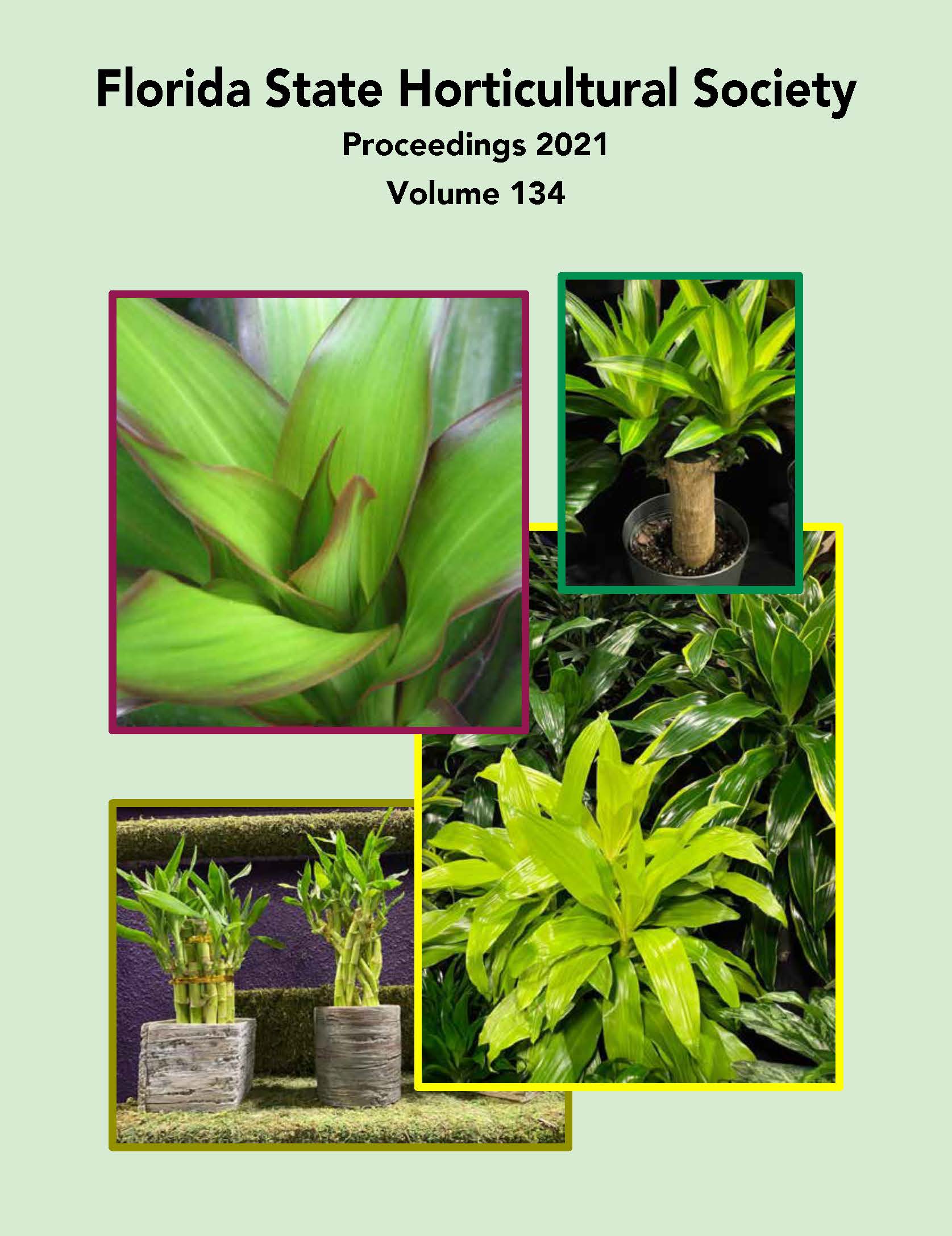Incidence and Distribution of Tomato Yellow Leaf Curl Virus (TYLCV) and the Potential of TYLCV-resistant Cultivars to Manage TYLCV and Other Tomato Diseases in South Florida
Abstract
Tomato yellow leaf curl virus (TYLCV), transmitted by whitefly (Bemicia tabaci), has been one of the major limiting factors in tomato production in Florida since its introduction in 1990s. Current control of TYLCV largely relies on heavy sprays for whiteflies. Planting resistant cultivars is the best way to manage TYLCV and reduces grower expenses for pesticides. Tomato cultivars commonly planted in south Florida are resistant to the devastating tomato chlorotic spot tospovirus (TCSV) but are susceptible to TYLCV. In early March 2021, a high level of TYLCV was observed in two tomato fields with cultivar ‘Southern Ripe’. The average incidence was 30% and 34% on the south side of Fields 1 and 2, respectively, but 11% on the north side of Field 2. Two field trials were conducted in Homestead, Fla. to evaluate the performance of tomato cultivars resistant to both TCSV and TYLCV. In the first trial, planted December 2020, the incidence of TYLCV in cultivar ‘Red Bounty’ was 29.2%, while no TYLC was observed in cultivar ‘Varsity’. No TCSV was observed on either cultivar. Total fruit yield was 46,575 and 47,475 kg/ha for ‘Red Bounty’ and ‘Varsity’, respectively. Yield of extra-large and large fruit was 40,163 and 45,900 kg/ha for ‘Red bounty’ and ‘Varsity’, respectively. In the second trial, planted February 2021, no TCSV or TYLCV was observed on any of the six cultivars, including ‘Varsity’, ‘Packout’, ‘895FS’, ‘Vanessa’, ‘Shanty’, and ‘Katya’. Fruit yield was 27,900, 24,188, 30,713, 24,863, 26,550, and 24,975 kg/ha, respectively. Severity of bacterial spot was 7.5%, 2.7%, 5.0%, 11.7%, 12.5%, and 11.7%, respectively, at the end of the season with a rotation program of Actigard and ManKocide. This study provided south Florida growers with information about tomato cultivars with yield potential comparable to currently used cultivars and reduced disease management costs.

